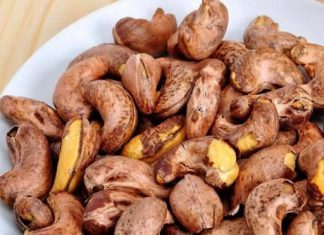Your Body Knows When Death is Near – And It All Starts with the Nose
Despite decades of research and advancements in technology, some aspects of the human body remain an enigma to scientists. Considering the extraordinary complexity of our biology, this isn’t entirely surprising.
Just as some individuals claim to possess a “sixth sense” that allows them to predict certain events, recent studies suggest that humans might also have an innate ability to sense when death is near. Researchers have discovered that the body emits a specific signal when it begins to break down after death, and it all comes down to a distinct odor.
The Science of Putrescine: A Scent of Decomposition
When someone passes away, the body undergoes immediate decomposition, releasing a compound known as putrescine. This substance has a foul, toxic odor and is a natural byproduct of decay. Intriguingly, humans seem to subconsciously recognize this scent, even if they’re not aware of it on a conscious level. The release of putrescine triggers an almost instant reaction, according to two researchers: Arnaud Wisman from the University of Kent in the UK and Ilan Shira from Arkansas Tech University in the US.
Their research indicates that humans, like animals, can detect specific odors and respond to them as a means of survival. This is an evolutionary trait shared across many species. When exposed to the smell of putrescine, people instinctively exhibit conscious and subconscious reactions, often moving away from the source—much like animals fleeing from perceived danger.

Scent and Survival: A Deep Connection
In their experiments, Wisman and Shira observed that the odor of putrescine makes people more alert to their surroundings and prompts avoidance behaviors. “We don’t fully understand why we like or dislike certain smells, nor are we always aware of how scents influence our emotions, preferences, and attitudes,” they explained.
While it may be difficult to imagine a scent as inherently “frightening,” the study reveals that odors can heighten vigilance and evoke primal survival instincts. This phenomenon isn’t limited to putrescine. Sex pheromones, for example, are another type of odor that significantly influences human behavior. These chemicals, produced by males or females, elicit behavioral responses in the opposite sex, often driving mating behaviors.
A Contrast to Pheromones
Unlike pheromones, which are typically associated with attraction and reproduction, putrescine sends a vastly different signal. Researchers found that while pheromones encourage approach and connection, the scent of putrescine prompts avoidance and, in some cases, hostility. Interestingly, humans are generally unaware of these responses and do not consciously associate the odor with fear or death. Yet, the subconscious impact of this scent is undeniable.

The Hidden Influence of Scents
This research sheds light on the powerful, often unnoticed role of scent in shaping human emotions and behavior. Whether it’s a signal of danger or a cue for attraction, odors play a profound role in our survival and social interactions.
Feel free to share this fascinating discovery with your family and friends on Facebook!

















